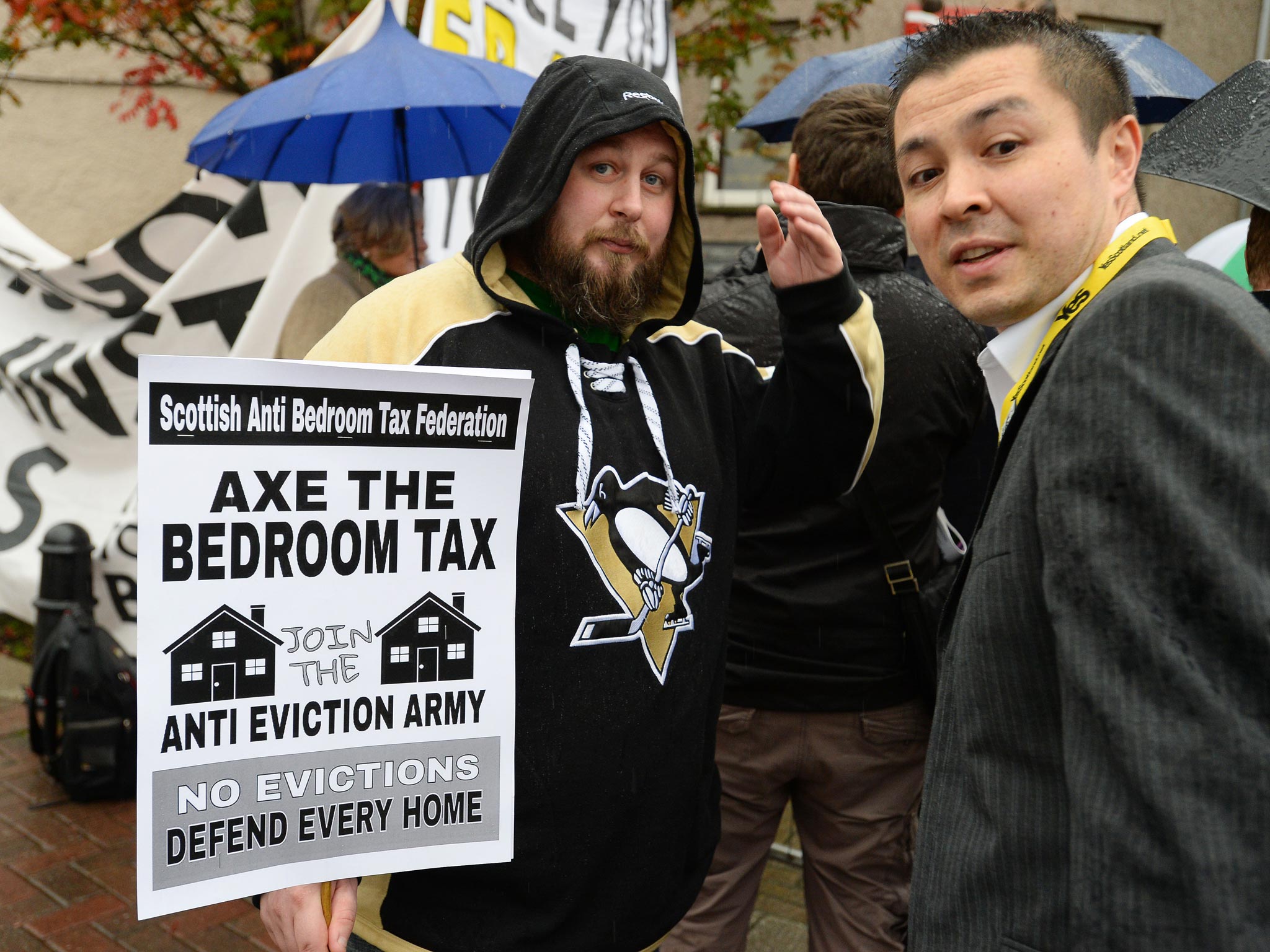The bedroom tax is ineffective as tenants have nowhere else to go
Unless the country builds smaller units of social housing the bedroom tax will continue to punish people who are stuck in the ‘wrong’ sized property

Your support helps us to tell the story
From reproductive rights to climate change to Big Tech, The Independent is on the ground when the story is developing. Whether it's investigating the financials of Elon Musk's pro-Trump PAC or producing our latest documentary, 'The A Word', which shines a light on the American women fighting for reproductive rights, we know how important it is to parse out the facts from the messaging.
At such a critical moment in US history, we need reporters on the ground. Your donation allows us to keep sending journalists to speak to both sides of the story.
The Independent is trusted by Americans across the entire political spectrum. And unlike many other quality news outlets, we choose not to lock Americans out of our reporting and analysis with paywalls. We believe quality journalism should be available to everyone, paid for by those who can afford it.
Your support makes all the difference.The idea that the state should only pay for people to live in houses that are the size they need is a logical one. But the bedroom tax has proved to be a blunt and ineffective way of achieving this that has trapped many households in debt.
Ministers said they were ‘removing the spare room subsidy’ by reducing the housing benefits of social housing tenants deemed to have a surplus room. They also said it would tackle the issue of people under-occupying properties. But a chronic shortage of one and two-bedroom properties means thousands of people are unable to downsize and instead face mounting rent arrears.
Many councils have long had a policy of building three and four bedroom homes that families can grow into. Unless the country builds smaller units of social housing the bedroom tax will continue to punish people who are stuck in the ‘wrong’ sized property.
The biggest group of people under-occupying social housing are pensioners, who often live in the three or four bedroom places allocated while their children still lived with them. Few people would advocate kicking the retired out of their homes but one of the major flaws in a policy intended to tackle under-occupying is that anyone over the age of 61 is exempt.
Many councils are furious with the Government for forcing them to penalise people who are unable to move to non-existent smaller properties. Discretionary housing payments - emergency funds for those struggling to pay rent - have offered a way of mitigating this. But the latest figures published in i show that even these are not enough to help everyone in hardship under this controversial policy.
Join our commenting forum
Join thought-provoking conversations, follow other Independent readers and see their replies
Comments